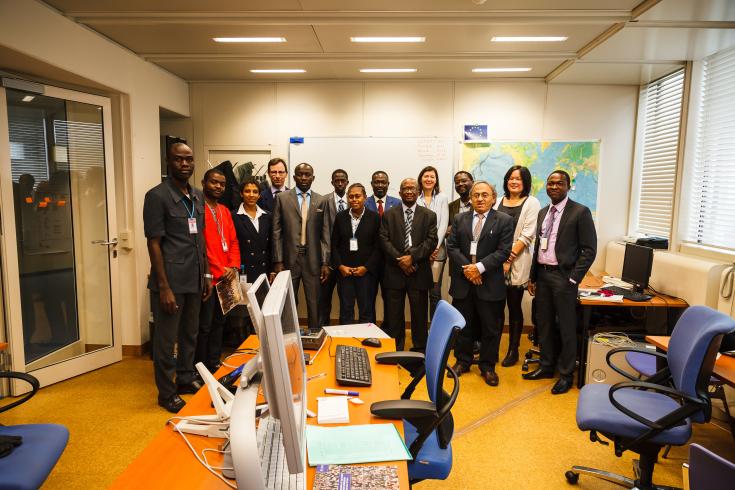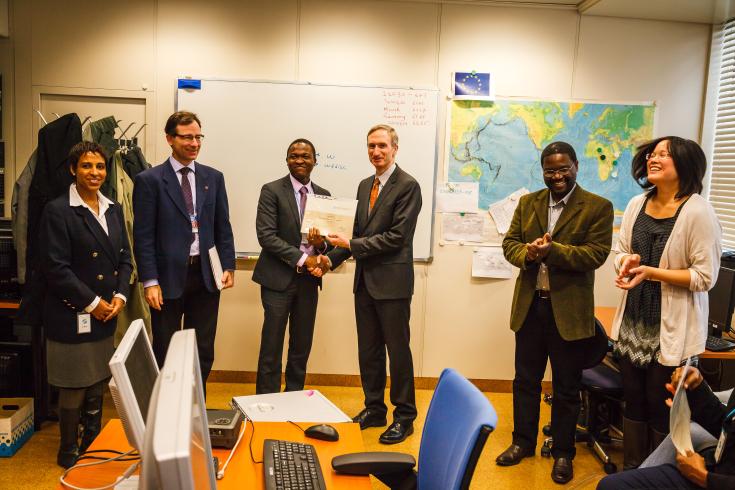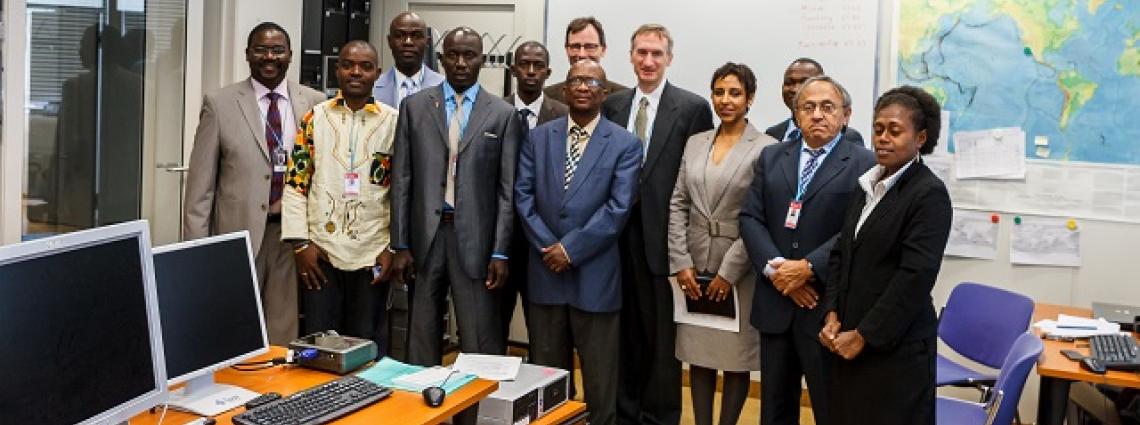Intensive Training for National Data Centre Analysts

NDC participants with CTBTO trainers

Belinda Waokahi from the Solomon Islands receiving her certificate.
“This course helps the Member States fulfil their commitments under the Treaty through their National Data Centres (NDCs). It also helps Member States exercise or extract the full benefits of CTBT data by enabling the NDCs – and through the NDCs perhaps other institutions – to make use of CTBTO data not only for monitoring purposes but also for other civil and scientific applications.”

The European Union provided funding for the training course.
“Because our country is in an active seismic zone – located along the convergent boundaries of the Pacific and Australian plates – the tool will help us to analyse events, because we usually have big events.”
Building NDCs’ capacities through the acquisition of new skills

Salomon Cesar Nguemhe Fils receiving his certificate from Randy Bell, Director of the IDC
“I have learned to use a completely new technique to analyse data – now I can differentiate between whether an event is natural, like an earthquake, or not such as a nuclear explosion. The fact that the group was so small with only nine participants allowed us to stop the trainers at any time if we had a question or problem, which was great.”
Around 50 NDC analysts have benefitted from such training since 2012
9 Dec 2013
